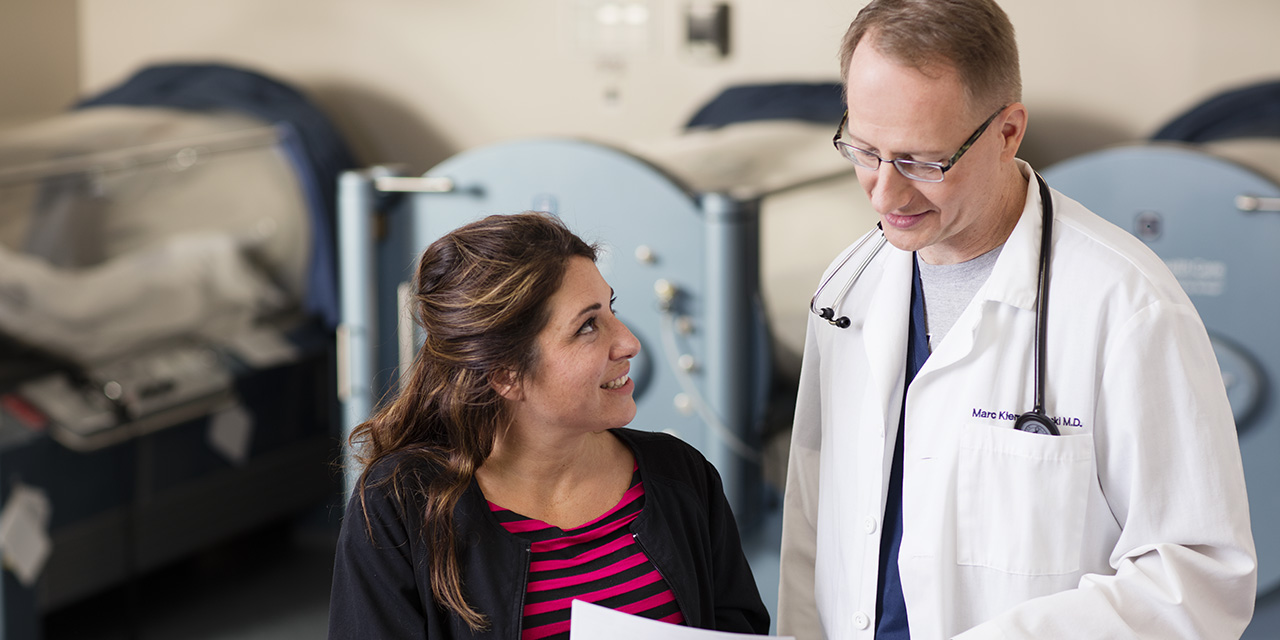Some wounds are deep enough that we can’t rely on nature alone to manage the healing process. In swoops science with hyperbaric oxygen therapy, which gives physicians the superpower abilities to accomplish what the body can’t do on its own. Hyperbaric oxygen therapy allows us to heal difficult wounds by increasing oxygen delivery to damaged tissues.
“The most common diagnoses we treat with hyperbaric oxygen therapy are diabetic foot ulcers with underlying bone infection. It’s also very common for us to see radiation injuries
in patients who have received cancer treatment.
 Hyperbaric oxygen therapy can also help patients with failed flaps, meaning after a surgery, the incision line has failed.
Hyperbaric oxygen therapy can also help patients with failed flaps, meaning after a surgery, the incision line has failed.
Each session requires that we take your vitals, check your blood sugar, and you have to change your clothing, so you’re in the office for about two hours. You’re in the chamber breathing 100% oxygen for a total of 90 minutes, fortunately, we have monitors mounted above the chamber so that you can watch TV. We have a wide selection of DVDs for your viewing pleasure; patients can also listen to music while they’re in the chamber. Or you can take a nap!”
Jill Eysaman-Walker, DO
Certified Wound Care Physician, Catholic Health Advanced Wound Healing Centers
Wounds that don’t heal within four to six weeks may be considered chronic. Common conditions that our wound care specialists often see include:
- Diabetic foot ulcers
- Long-term effects of radiation treatment
- Wounds in areas that have been deprived of oxygen due to blood clots
Hyperbaric oxygen therapy is completely painless and poses a very low risk to the patient. They will spend time in a chamber that allows patients to breathe in a concentration of oxygen nearly 10 times that of the air we breathe in every day. The purpose of breathing this pure oxygen is to jumpstart the healing process by creating conditions for angiogenesis. This is a clinical term that means the development of new blood vessels.
During treatment, patients are required to lay in a chamber and breathe in pure oxygen for prolonged periods of time. Most wound care facilities offer patients the option to watch a movie during the session, as well as a way communicate with their wound care provider. Any potential health concerns or side effects should be addressed prior to the first treatment.
Find a Wound Care Specialist Near You
Call (716) 706-2112



